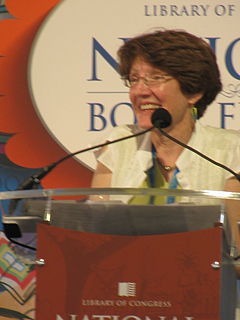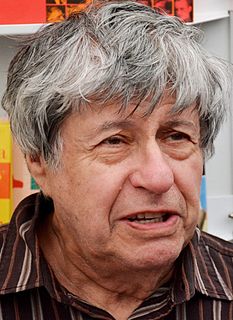Цитата Джастина Кронина
Это литературно-популярное различие, на мой взгляд, сильно преувеличено. На дальних полюсах явно находятся чисто коммерческие и чисто литературные книги, написанные для аудитории, которая хочет видеть одно и то же разыгрываемым снова, и снова, и снова. Но середина — это место, где большинство людей читают и большинство людей пишут.
Связанные цитаты
Только идиоты или снобы когда-либо действительно меньше думали о «жанровых книгах», конечно. Есть глупые книги, а есть умные книги. Есть хорошо написанные книги и плохо написанные книги. Есть веселые книги и скучные книги. Все эти различия гораздо важнее, чем различие между литературным и нелитературным.
Я не считаю себя особо умным человеком, но у меня есть одна способность, которую я демонстрировал снова и снова, которая помогла мне видеть вещи, которые другие люди по каким-то причинам не видели. Дело в том, что большинство людей видят то, что они ожидают увидеть, то, что они хотят видеть, то, что им подсказывает общепринятая мудрость. Думаю, можно сказать, что большинство людей слышат только музыку, а не тексты человеческих событий.
Моя мама рассказывала мне сказки на ночь, читала мне книги, и я перечитывал их снова, и снова, и снова. И знаете, чему я научился из этого? Я вернулся и посмотрел на все. Почему мне нравится читать одни и те же истории снова и снова? Что, я был каким-то болваном? Нет, повествование дало мне связь с моей мамой.
В Америке есть тенденция писать одну и ту же книгу снова и снова, потому что это то, что продается. Так что в некотором смысле мой успех в Америке пришел за счет того, что я делаю. Я не продался и не пошел по популярному пути написания книги-бестселлера. Я действительно взбрыкнул систему. Так что мне нужно было не искать простых фанатов, тех, кто хочет что-то удобоваримое и быстрое со счастливым концом, которое они могут перечитывать снова и снова, независимо от того, сколько это разных книг. Я должен был найти поклонников, которые действительно хотели думать. Во всем мире у них есть это общее.
Те же самые люди, которых прислали американцы, которых мы прислали консультировать русских, мы также отправили консультировать поляков о том, как строить посткоммунистическую экономику. Те же люди, те же советы, с совершенно разными результатами, что наводит на подозрение, что решающим фактором был не наш совет. Это были поляки с одной стороны и русские с другой. Поляки преуспели; русские этого не сделали. Не вините нас.
Иногда я перечитываю одни и те же книги снова и снова. Что хорошего в книгах, так это то, что содержимое внутри них не меняется. Люди говорят, что нельзя судить о книге по обложке, но это неправда, потому что прямо на обложке написано, что внутри. И сколько бы раз вы ни читали эту книгу, слова и картинки не меняются. Вы можете открывать и закрывать книги миллион раз, и они останутся прежними. Они выглядят одинаково. Они говорят одни и те же слова. Схемы и картинки одного цвета. Книги не такие, как люди. Книги в безопасности.
Каждые несколько секунд в свет выходит новая книга. Большинство из них будут просто частью гула, из-за которого мы плохо слышим. Даже книга становится инструментом забвения. Подлинно литературное произведение рождается как крик протеста его создателя против нависшего над ним, над его предшественниками и современниками забвения, над его временем и языком, на котором он говорит. Литературное произведение — это то, что бросает вызов смерти.
Когда вы спортивный обозреватель, вы учитесь использовать свое воображение и напрягать свои литературные мускулы, потому что это одна и та же игра, в которую играют снова и снова. Нет ничего уникального или удивительного. Это не землетрясение и не странное массовое убийство. Это просто одна и та же старая игра, в которую играют снова и снова, и вы должны выявить личности. Вы должны вытащить их, брыкающихся и кричащих, на свет божий, иначе вы плохой спортивный обозреватель.

































